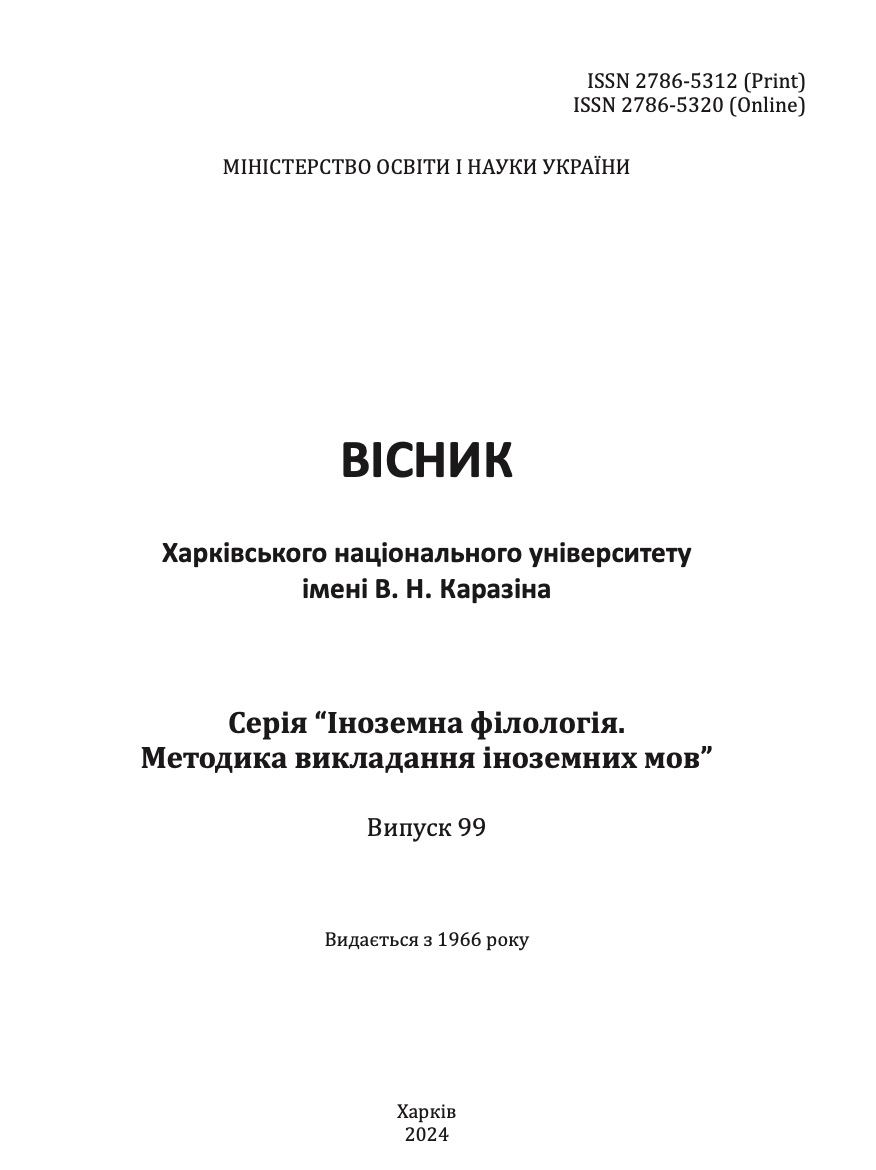British small talk as an ecolinguistic phenomenon
Abstract
The article analyzes modern small talk as a way of establishing contacts, which is typical for British linguistic culture, as it manifests the speaker’s wish to achieve emotional and intellectual understanding and create a friendly atmosphere at the initial phase of the conversation, especially when it is necessary to avoid long and inconvenient silence. Speech clichés, etiquette formulas for establishing and maintaining communicative contact, as well as specific topics for discussions are determined by the socio-ethical norms of the British cultural community. Interlocutors are guided by the goals of regulating social contacts, serving the purpose of strengthening contacts. The limits of phaticity in the contact-establishing phase of social conversation and the transition to informativeness in the process of conversation depend on a type of discourse, a type of situation, and communicative goals of the speakers. Under the conditions of the situation threatening the speakers’ lives, or a change from an ecological unison model of communication to a non-ecological dissonant one, the speakers’ rejection from phaticism in the phase of establishing contact in favor of informativeness has been observed. British communicative culture ensures the balance of the ecosystem due to the use of a significant number of linguistic elements ensuring the implementation of harmonious communication: polite forms of encouragement instead of the use of the Imperative Mood which sounds too categorical for British culture, disjunctive questions that combine both the features of interrogative and affirmative statements, superlative forms of adjectives. Small talk components, such as the ability to listen, minimal transmission of negative emotions, limited or zero use of negatively colored vocabulary, the creation of a safe and convenient atmosphere of communication, observance of the personal boundaries of the interlocutor, the interest in what the interlocutors say, as well as sincerity correspond to the main principles of ecological communication.
Downloads
References
Bickmore, T. A. (1999). Computational Model of Small Talk. URL: http://web.media.mit.edu/~bickmore/Mas962b
Coupland, J. (2003). Small talk: Social functions. Research on Language & Social Interaction, 36(1), 1-6. https://doi.org/10.1207/S15327973RLSI3601_1
Holmes, J. (2014). Doing collegiality and keeping control at work: Small talk in government departments. In Coupland, J. (Ed.),Small talk. Hoboken: Taylor and Francis.
Leech, G. (1983). Principles of Pragmatics. London, N.Y.: Longman.
Manzo, F. G. (2014). Talking big about small talk: a contemporary theoretical model for phatic communication. M.A. Thesis:Mount Saint Vincent University.
Matiukhina, Yu. (2014). SMALL TALK iak riznovyd anhlijs’koi fatychnoi metakomunikatsii: aspekt diakhronii [Small talk as a varity of phatic metacommunication: diachronic aspect]. Visnyk Kharkivs’koho natsional’noho universytetu imeni V.N. Karazina.Seriia «Romano-hermans’ka filolohiia. Metodyka vykladannia inozemnykh mov»,1102, 65-71. (in Ukrainian).
Meyer-Hermann, R. (1976). Metakommunikation. Linguistik u Didaktik, 25, 83–86.
Schwitalla, J. (1979). Metakommunikation als Mittel der Dialogorganisation und der Beziehungsdefinition. Arbeiten zur Konversationsanalyse. (S. 111–143). Tübingen : Niemeyer.
Poliuzhyn, M. M. (2001). Dyskursyvni stratehii ta orhanizuiuchi stereotypni vyslovliuvannia v anhlijs’kij movi. Dyskurs inozemnomovnoi komunikatsii: kolektyvna monohrafiia [Discourse strategies and organising stereotypical statements in English. Discourse of foreign language communication: a collective monograph]. L’viv: Vyd-vo L’vivs’koho natsional’noho universytetu imeni I. Franka,2001.
Samokhina, V. & Shpak, O. (2019). Ekolohiia kontaktu v anhlomovnomu dyskursi: monohrafiia [The ecology of contact in English discourse]. Kharkivs’kyj natsional’nyj universytet imeni V. N. Karazina. Kharkiv. (in Ukrainian).
Samokhina V., Shpak O. & Pasynok, V. (2022). The Ecology of Communicative Contact in English-Speaking Discourse. Theory and Practice in Language Studies. Vol.12. No. 1, 170-177.
DOI: https://tpls.academypublication.com/index.php/tpls/issue/archive
Semeniuk, A. A. (2012). Funktsional’ni osoblyvosti spontannoho informatyvnoho dyskursu [Functional features of spontaneous informative discourse]. Naukovyj visnyk Volyns’koho natsional’noho universytetu imeni Lesi Ukrainky. Filolohichni nauky. Movoznavstvo, 24(249), 122–128. (in Ukrainian).
Scannell, P. (2004). Love and Communication: A Review Essay. Westminster Papers in Communication and Culture. London:University of Westminster.
Stibbe, A. (2021). Language, ecology and the stories we live by. Second Edition. Abingdon, Oxon; New York, NY. Routledge.Retrieved from: https://www.routledge.com/Ecolinguistics-Language-Ecology-and-the-Stories-We-Live-By/ Stibbe/ p/book/9780367428419
Hitchings, H. (2013). Sorry! The English and their Manners. First American edition, USA, 2013.
“Sweet Sorrow” [Електронний ресурс]. Режим доступу: https://www.goodreads.com/book/show/43188104-sweet-sorrow
“The Queen” Retrieved from: https://imsdb.com/scripts/The%20Queen.html%e2%80%8e




